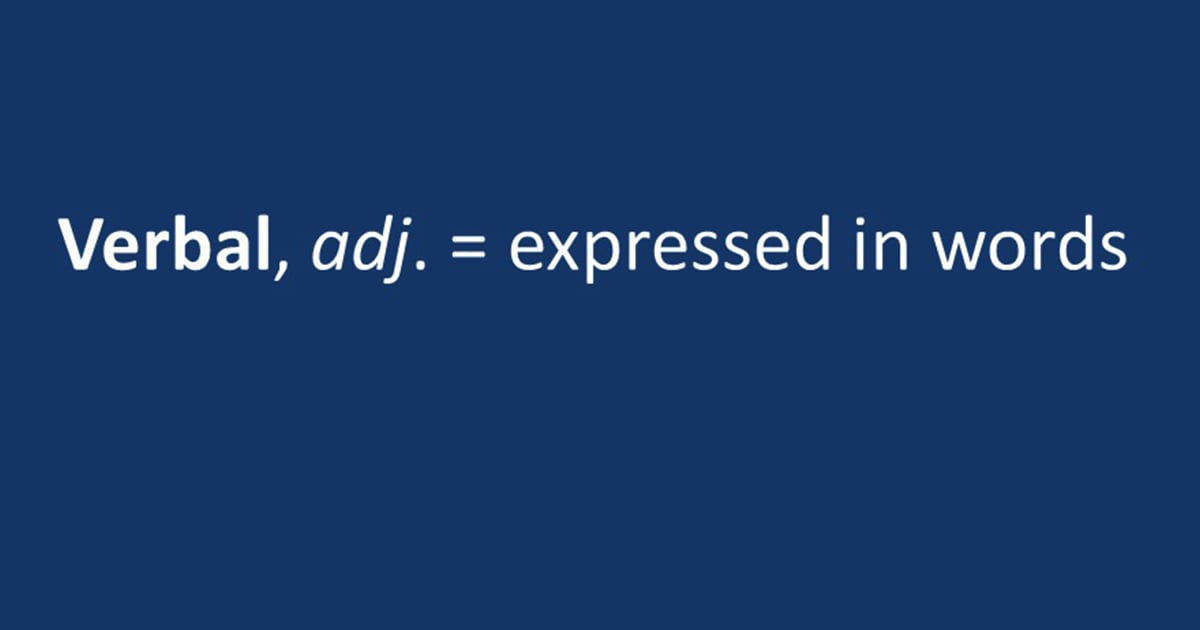Verbal vs. Oral: Know the Difference

With the encouragement of my colleague Joe Kimble, editor of the long-running Michigan Bar Journal Plain Language column, I submitted “Help Wanted (and Needed!),” which appeared in the January 2019 issue. It called attention to help-wanted ads that demand excellent writing skills—but demonstrate something less.
Common problems that I identified included lack of parallel structure, unhyphenated phrasal adjectives, a host of punctuation errors, and sloppy proofreading.
VERBAL FOR ORAL
I also wrote that several firms used verbal when they meant oral. A Warren law firm’s ad said: “Candidate must have excellent verbal and writing skills.” A Lansing law office advertised: “The ideal candidate should...have superior written and verbal communication skills.” A Fenton law firm advertised for a legal assistant with “excellent written and verbal communication skills.”
The column reminded the Bar Journal’s 40,000+ readers that verbal means “expressed in words,” which can be written or oral. Verbal is a perfectly good word to use to include both written and spoken language. But verbal should not be paired with written because it already includes both means of communication.
In his Dictionary of Modern Legal Usage, Bryan A. Garner affirms: “The misuse of verbal for oral…is especially acute when verbal is opposed to written.” And lawyers, he notes, “are among the chief offenders in the oral-verbal confusion.” Elsewhere, Garner has recognized that some people think oral has acquired a prurient connotation. “If you think of ‘oral’ in a narrow sexual sense, you should immediately wash your mouth out with soap,” he admonishes.
SINCE THEN
Periodic sampling has revealed that most of the common errors have decreased in frequency across our state since the column’s publication. But misuse of verbal has increased.
During a two-month span in 2019, Pepper Hamilton advertised for an associate in its Detroit office with “excellent written and verbal communication skills.” Honigman sought a proposal manager in their Detroit office with “outstanding interpersonal, verbal and written communication skills.” Benmore Logistic Systems wanted an in-house attorney who “effectively communicates verbally and in writing.” Belfor Property Restoration in Birmingham sought a contracts attorney who can “clearly present data both in writing and verbally.”
During a similar period in 2020, a dozen additional offenders include Harmon International in Novi (“verbal and written”), Foley, Baron, Metzger & Juip in Livonia (“verbal and written”), Fahey Schultz Burzych Rhodes PLC in Okemos (“verbal and written”), Friedman Real Estate of Detroit (“verbal and written”), Allstate lnsurance Company in Farmington Hills (“verbal, written”), Jackson National in Lansing (“verbal and written”), Progressive Insurance in Kalamazoo (“verbal and written”), Immigration Law PLLC in Ann Arbor (“verbally and in writing”), auto supplier Faurecia in Auburn Hills (“verbally and in writing”), and legal search firm TTrustpoint.One in Southfield (“written and verbal”).
Insurance companies form a sub-class of verbal-for-oral offenders. In addition to Allstate, Jackson National, and Progressive, already noted, a national insurance company sought a paralegal that possesses "excellent verbal and written communication skills." A Lansing-based annuity company advertised for a paralegal with "strong written and verbal communication skills." Another insurance company wanted a trial attorney for its Flint office possessing “excellent verbal, written and interpersonal skills.”
Why is it that insurance companies take such pains when drafting their policies and yet display carelessness in wording help-wanted ads? Their Legal and HR Departments should join hands to bridge this gap.
A POSSIBLE SOURCE
What could be the source of this continuing verbal abuse? Adam Eakman, author of “Six Usage Mistakes Common in Legal Writing and Why They Matter” in the current Scribes Journal of Legal Writing, offers a possible clue: judges. He writes: “[W]hen judges use verbal, they nearly always mean oral.” He found more than 4,000 opinions by federal judges alone that referred to a “verbal agreement.” “In most of these cases, the judge meant an oral agreement.”
In the proper sense of the word, of course, all agreements are verbal (written or oral) unless they are implied in fact or law.
I haven’t run a word search of Michigan Supreme Court opinions. I’m confident that the skilled editors in the office of the Reporter of Decisions would not let verbal misuse make it into print. But Court-affiliated agencies have occasionally slipped up.
Within the past year, Judicial Information Services, the IT arm of the Michigan Supreme Court, advertised for an SQL Application Developer who can “communicate effectively, both verbally and in writing.” And the State Court Administrative Office posted a position for a qualified Business Analyst in almost the same language (“communicate effectively and efficiently, both verbally and in writing”).
Verbal for oral is a common misuse. But if effective communication is sought, so should it be demonstrated. We all—law firms, insurance companies, and the judiciary—need to do a better job of ridding the legal profession of verbal abuse.
Otto Stockmeyer is a distinguished professor emeritus at Cooley Law School. He is a past president of Scribes—The American Society of Legal Writers and a frequent contributor to legal periodicals and blogs.

